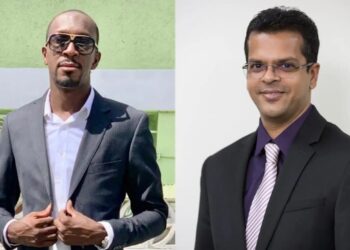Businessman Dorwain A. Bess in a recent public missive has, expressed deep disappointment over the elected political opposition in Guyana—primarily recognized as an Afro-based party—leveraging the current political cycle to score cheap political points by criticising the government’s efforts to sponsor a free Emancipation Day event at the Malteenoes Sports Club.
The People’s National Congress Reform (PNCR) publicly condemned the People’s Progressive Party (PPP) government’s actions, accusing it of using this year’s Emancipation Day observance to divide and dishonour the Afro-Guyanese community, thereby undermining efforts at self-determination, self-expression, and self-organisation. The opposition claimed that the government’s plan to sponsor a free event at the Malteenoes Sports Club, in competition with the traditional African Cultural & Development Association (ACDA) event at the National Park, demonstrates a disregard for Afro-Guyanese in their homeland. For the past 31 years, ACDA has been organising the Emancipation Day event.
“As an Afro-Guyanese, I must emphasise that we, as a people, must look beyond party loyalty and recognize that the State is distinct from the government of the day and any political party wielding power at the time,” Bess stated.
The opposition argues that instead of using the country’s oil wealth to promote the dignity and prosperity of all Guyanese, regardless of political affiliation, social status, race, and ethnicity, the PPP has chosen to engage in divisive politics. It is important to note that the Ministry of Culture, Youth, and Sport, under successive administrations, has funded holiday activities for various races, religions, and other groups.
Bess questioned the PNCR’s rationale, asking if the Indo-Guyanese community should not have expressed similar resentment when the previous APNU+AFC administration used State funds to support Indo-centric activities.
According to the businessman, since achieving independence in 1966, Guyana’s political landscape has been heavily influenced by ethnic divisions, often detracting from the ideals of unity and inclusivity. These divisions, he posits, “have roots in the colonial past, where different ethnic groups were brought together under exploitative circumstances, creating a fragmented social fabric. Despite significant national strides, ethnic politics continue to hinder progress and potential.”
Guyana, he said, is home to six major ethnic groups: Afro-Guyanese, Indo-Guyanese, Amerindians, Chinese, Portuguese, and Europeans but while this cultural diversity is a source of strength, it has also been a source of division.
This, since political parties have often aligned with specific ethnic groups, leading to polarised voting patterns and governance that prioritise ethnic loyalty over national unity, perpetuating mistrust and competition rather than collaboration and collective progress.
According to Bess, despite abundant natural resources—gold, diamonds, bauxite, forestry, rice, sugar, fisheries, and now oil—economic benefits have not been equitably distributed among all Guyanese.
As such, looking ahead, Bess is of the view it is crucial that the next election focuses on the future rather than the past. It should prioritise education to ensure all citizens can benefit from new job opportunities. This election must transcend race, religion, or gender identity, fostering unity among the people. Only then can Guyana truly achieve its potential and become the greatest nation it can be.













